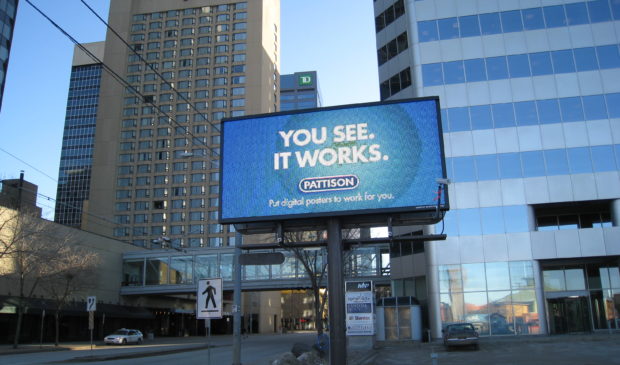About the Author
Jo Clifton is the Politics Editor for the Austin Monitor.
Newsletter Signup
The Austin Monitor thanks its sponsors. Become one.
Most Popular Stories
- Parks Board recommends vendor for Zilker Café, while voicing concerns about lack of local presence
- City leaders evaluate surprising ideas for water conservation
- Audit: Economic official granted arts, music funding against city code
- Downtown Historic Resource Survey eyes seven new districts eligible for designation
- Austin is losing even more water to leaky city pipes than previously thought
-
Discover News By District
Popular Whispers
Sorry. No data so far.

City wins digital billboard battle at Supreme Court
Friday, April 22, 2022 by Jo Clifton
On a vote of 6-3, the U.S. Supreme Court decided Thursday that the city of Austin’s regulations prohibiting digital billboards and other off-premises digital signs are content-neutral and therefore do not violate the First Amendment.
Reagan National Advertising and Lamar Advertising Company sued the city in a Travis County District Court after attempting to get permission to make some of its billboards digital in 2017. In 2019, Judge Robert Pitman of the U.S. District Court in Austin sided with the city, saying that the on-/off-premises distinction did not depend on the content of the sign. The billboard companies appealed to the 5th Circuit, which reversed Pitman’s ruling. The city then appealed to the Supreme Court.
But the 5th U.S. Circuit Court of Appeals disagreed, ruling that the distinction between on-premises signs and off-premises signs violated the First Amendment because the building official had to look at the sign in order to determine whether it was on- or off-premises. The opinion was based on the appeals court’s interpretation of a 2015 case, Reed v. Town of Gilbert.
A city spokesperson told the Austin Monitor, “The city of Austin is gratified by the Supreme Court’s recognition that the city’s regulation of off-premise signage is a content-neutral measure designed to serve safety and esthetic interests, consistent with thousands of similar regulations nationwide, including the Federal Highway Beautification Act.”
Justice Sonia Sotomayor authored Thursday’s decision. Joining her were Chief Justice John Roberts and justices Stephen Breyer, Elena Kagan and Brett Kavanaugh. Justice Samuel Alito filed an opinion concurring on the major issue, but dissenting in part. Justice Clarence Thomas, joined by Neil Gorsuch and Amy Coney Barrett, dissented.
The Supreme Court opinion stated, “Reed held that a regulation of speech is content based under the First Amendment if it ‘target[s] speech based on its communicative content,’ i.e., if it ‘applies to particular speech because of the topic discussed or the idea or message expressed.’ … The Court of Appeals’ interpretation of Reed – to mean that a regulation cannot be content neutral if its application requires reading the sign at issue – is too extreme an interpretation of this court’s precedent.”
They ordered the case to be returned to the appeals court for further consideration. That would include considering whether Austin’s regulations violate a lower standard of legal scrutiny.
Reagan spokesman Eric Wetzel told the Monitor via email, “This case isn’t over. The Supreme Court simply sent the matter back to the Fifth Circuit Court of Appeals, so that its panel of judges can decide if Austin’s digital-advertising restrictions survive the constitutionality test known as intermediate scrutiny. We believe those restrictions violate the First Amendment, and we look forward to making that argument before the Fifth Circuit.”
Attorney Renea Hicks, who led the city’s legal team on the case, said despite the high court’s language directing the case back to the 5th Circuit, he believes that court will take no further action because Reagan did not raise that issue on appeal. He said District Judge Robert Pitman has already held that Austin’s rules “satisfy intermediate scrutiny,” and that the rules meet the test even if Reagan didn’t bring it up at the appellate court.
The city had support from a multitude of organizations seeking to protect natural settings and prevent the proliferation of billboards. One supporter, Scenic America, said in a press release Thursday, “In a victory for scenic beauty, the U.S. Supreme Court today ruled 6-3 in the case of the City of Austin v. Reagan National Advertising that the long-standing distinction between content displayed on signs that are located on-premises and off-premises is constitutional.”
Scenic America and its allies filed a friend of the court brief supporting Austin before the case was heard last November.
According to Scenic America President Mark Falzone, the organization was concerned that a win by Reagan would not only jeopardize local regulations but would “chip away at the sacred legacy of the Highway Beautification Act.” The Supreme Court ruling, he said, “affirms a city’s right to have a say on what its streetscape looks like.”
Photo made available through a Creative Commons license.
The Austin Monitor’s work is made possible by donations from the community. Though our reporting covers donors from time to time, we are careful to keep business and editorial efforts separate while maintaining transparency. A complete list of donors is available here, and our code of ethics is explained here.
You're a community leader
And we’re honored you look to us for serious, in-depth news. You know a strong community needs local and dedicated watchdog reporting. We’re here for you and that won’t change. Now will you take the powerful next step and support our nonprofit news organization?


